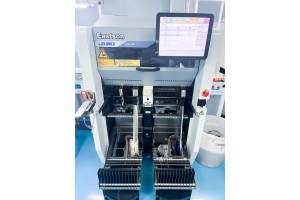As major semiconductor manufacturers scramble to capitalize on the AI boom, chip production can't keep up with demand. Industry experts say the slow expansion of high-end chip production capacity is due to different packaging and testing technologies used by various companies, prompting calls for standardized practices.
Jim Hamajima, president of SEMI Japan, an international semiconductor industry organization, highlighted the urgent need for more global standards in backend manufacturing processes. This would allow companies like Intel and TSMC to ramp up production more effectively. Currently, TSMC and Intel are experimenting with unique backend solutions, but the lack of common standards is hampering efficiency.
Hamajima pointed out that backend processes, including chip packaging and testing, are more fragmented than early-stage manufacturing steps like lithography, which widely adopts SEMI standards. He believes this fragmentation could impact profitability as companies pursue more powerful chips.
Semiconductor manufacturing is divided into frontend and backend processes. While frontend lithography techniques commonly use SEMI's international standards, backend processes such as packaging and testing vary. For instance, TSMC uses CoWoS technology for advanced packaging, while Samsung Electronics employs I-Cube technology.
Chip packaging is crucial for technological breakthroughs since traditional methods of cramming more transistors onto a chip are hitting limits. This has spurred massive investments in R&D and production capacity. TSMC's CoWoS packaging technology, seen as essential for cutting-edge AI chips, is a prime example, with the company working hard to boost capacity to meet demand.
In recent years, semiconductor firms have invested heavily in advanced packaging technologies due to bottlenecks in frontend processes, making backend processes a decisive factor. Hamajima noted that if semiconductor manufacturers adopt standardized automated production techniques and material specifications, it would be easier to obtain manufacturing equipment and upstream material supplies during capacity expansions.
NOVA can offer a comprehensive range of services, from design to product manufacturing, ensuring strict quality control to help customers achieve rapid production, cost reduction, and increased efficiency.





